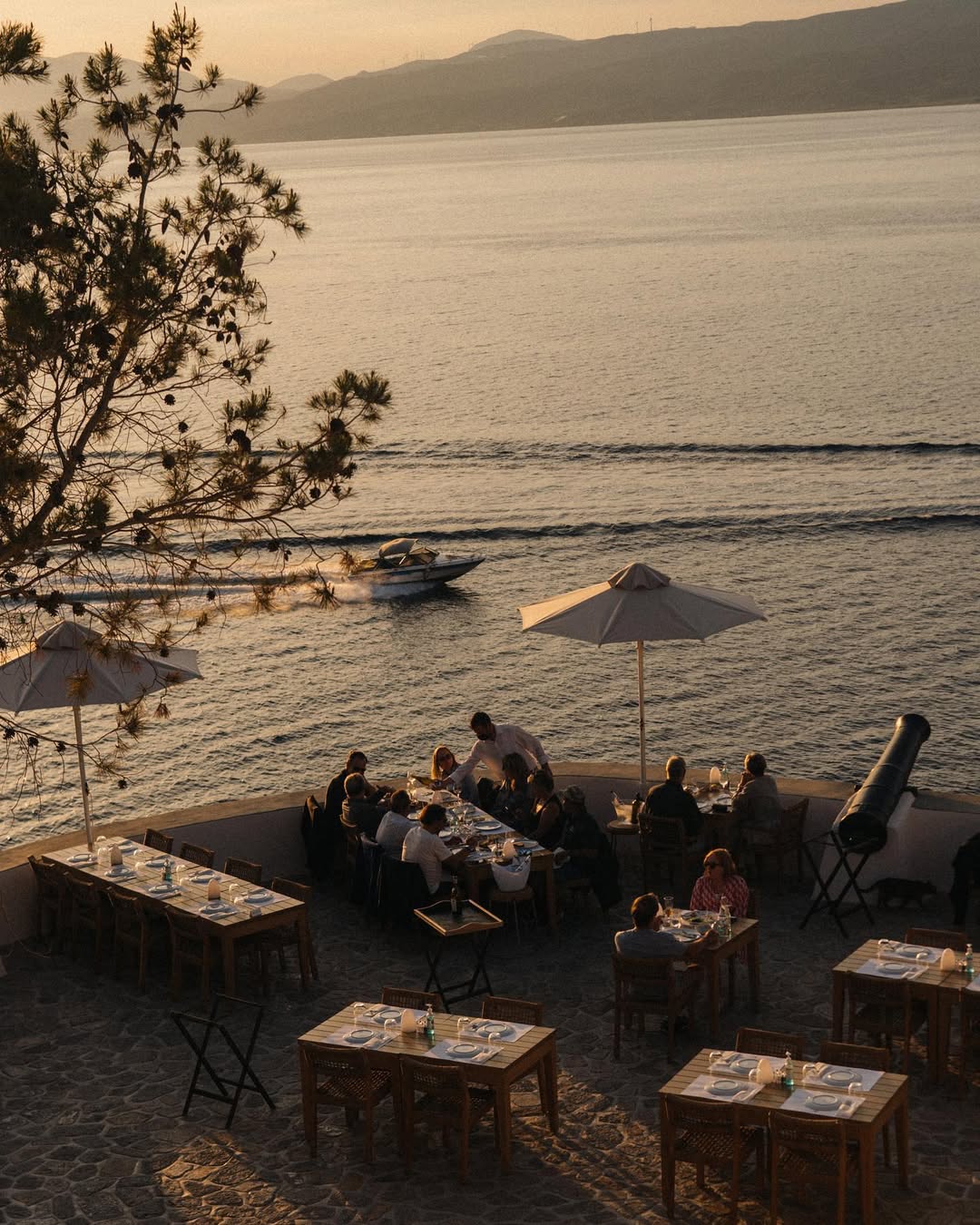Passports of Ambition: How Asia’s Next Global Leaders Are Strategising for Cultural Altitude

Seoul's young professionals are not only brushing up their English grammar or consulting MBA admissions guides. They are mapping a future beyond borders. Their browser tabs show a delicate balancing act: visa regulations, partner job markets, post-graduation salary thresholds, and quiet comparisons between housing prices in Paris and coffee cultures in Vienna. The modern Korean professional is not just relocating. They are curating.
This is not the restless expatriation of decades past, nor the hedge-your-bets migration that once defined post-crisis Korea. It is, instead, a considered strategy: ambitious, design-led, culturally attuned. At the core of it lies a different set of metrics. Not just rankings, but rhythm. Not just opportunity, but orchestration.
Asia’s emerging global leaders, particularly those in Korea, are now navigating their international trajectories with a mix of intellect and instinct. For them, culture is not a backdrop to professional life. It is infrastructure. And when choosing the next city to live, work, or study in, it is no longer just about the classroom or the corporate offer. It is about tempo, tactility, and the contours of belonging.
Beyond Brand-Name Ambition
Take the business school route, once a predictable path toward high-salaried security. For many Korean applicants, the traditional appeal of an Ivy League MBA still holds weight. But today’s discerning candidates look beyond glossy brochures. They are asking subtler questions. Will my partner be able to build a life here? What’s the daily sensory experience of the city? Can I imagine myself in its public spaces, its transit rhythms, its unspoken codes?
In the United States, schools like Columbia and Berkeley Haas continue to draw strong interest. Columbia, nestled in New York’s Upper West Side, offers a potent blend of global exposure and entrepreneurial energy. For many, its flexible curriculum and proximity to the tech sector make it a frontrunner. Yet even here, calculations are nuanced. The one-year OPT work visa after graduation feels less like a springboard and more like a stopwatch. The H1B visa lottery, with its sobering 26 percent approval rate, adds a layer of existential gamble.
The logic becomes clear. A two-year investment, with six figures in tuition and living costs, is now weighed against a one-in-four shot at long-term employment. In this equation, ambition must now be accompanied by agility.
The Rise of the Cultural Composite
This has led some to look westward. Not to California, but across the Atlantic. London Business School, set against the leafy backdrop of Regent’s Park, presents a tempting pivot. London’s tech ecosystem is now the third largest globally, after San Francisco and New York, and the UK’s Graduate Route visa offers a two-year runway post-graduation. The country’s Skilled Worker visa, with a relatively low salary threshold, adds a dose of certainty that is rare in today’s migration calculus.
But London is not a universal solution. Many Korean professionals have noted that while the city boasts a robust Korean finance network, it offers few examples of tech-sector Koreans relocating within the broader EU. The lack of EU-wide mobility following Brexit remains a sticking point, as does the city’s reputation for high rents and unpredictable public safety.
Vienna, surprisingly, has entered the conversation. With its imperial grandeur, walkable districts, and refined café culture, the Austrian capital delivers more than postcards. Consultant salaries there, when adjusted for cost of living, rank among Europe’s most generous. The city’s rent-to-income ratio is enviable, and its reputation for safety and quality of life resonates deeply with Seoul-born sensibilities.
Add to that the EU’s progressive visa structures, where post-graduate pathways offer high approval rates, low salary thresholds, and the eventual freedom to work across borders, and Vienna begins to look less like a detour and more like a deliberate choice.
Tokyo’s Magnetic Precision
For many, however, Tokyo remains the unspoken ideal.
Its infrastructure is peerless. Trains arrive to the second, public spaces feel sacred, and its cuisine manages both delicacy and depth. It is a city of pattern and ritual, where one can read the cultural codebook in a morning konbini run or an evening stroll past a lantern-lit alleyway. For Koreans, the cultural proximity in manners, tempo, and shared aesthetic codes is undeniable.
Professionally, Tokyo’s economy is robust. Its tech scene, while less loud than its Western counterparts, is formidable and deeply embedded in global supply chains. Yet the city remains largely closed in one respect: language. Japanese fluency is often a non-negotiable in both corporate and daily life, and for many globally oriented professionals, this becomes a defining barrier.
Still, Tokyo’s allure endures. It is not just about employment, but about elegance. The possibility of a life structured with intention, where every element, from your morning commute to the quiet civility of department store elevators, feels calibrated. It is less about upward mobility, and more about the cadence of daily life.
A New Lexicon of Belonging
What is emerging is a new global vocabulary. One that combines professional ambition with lifestyle precision. Young Korean professionals are not rejecting the old metrics. They are refining them.
Quality of life, once considered an afterthought in relocation planning, is now central. Where will I feel safe walking home? What sort of conversations happen over lunch? Will I be able to find good bread, good books, or a reliable tailor?
Even data is evolving to match. Some have taken to benchmarking cities not just by GDP or employment rates, but by metrics like coffee culture density, partner career adjacency, and visa resilience. In cities like Paris or Madrid, post-grad visa approval rates reach 95 percent, with income thresholds often less than half of what an MBA graduate can command. These conditions, paired with Europe’s quality-of-life indices, create a landscape where ambition and pleasure are no longer at odds.
The Silent Role of the Plus-One
Rarely discussed in admissions interviews, the role of partners is becoming increasingly central in decision-making. Whether in architecture, urban planning, or policy, many couples are co-designing their next chapter. A school that offers one partner career acceleration but leaves the other stranded in visa bureaucracy or professional isolation is quickly deprioritised.
Cities like New York, London, and Paris have an edge here. Their polyglot economies and sprawling creative sectors provide more optionality. Yet even within these hubs, the logic is clear. Dual mobility or none at all.
This shift reflects a broader recalibration. The solo high-flyer narrative is giving way to one of shared design, where ambition is no longer singular but symphonic.
The Mindset of Migration Today
This cohort is not fleeing anything. Korea’s economy remains strong, its infrastructure enviable, its cultural production globally admired. What they seek is not an escape, but expansion. A new layer to their narrative. A horizon redefined.
They are charting futures in cities that echo their values: openness, curiosity, subtlety. They want careers that allow for deep specialisation without cultural estrangement. Lives that are global, but grounded.
There is, within this movement, a return to something old: the idea that to live well is to live wisely. That the shape of a life is determined not only by what one earns, but by what one experiences. A park at dusk. A barista who knows your name. A commute by bicycle rather than train.
Culture as Compass
For years, culture was treated as the soft dimension of global mobility. An afterthought to spreadsheets and salary forecasts. That era is ending. Today’s decision-makers are culture-literate. They understand that friction does not just show up in language gaps, but in unspoken etiquette, food preferences, even the layout of a grocery store.
They are investing in this knowledge. Not just to be polite, but to perform. To lead. To last.
Cities like Singapore, with its clean immigration paths and high-functioning systems, continue to be considered. But for many, the question is no longer just where one can go, but where one will grow.
It is a different kind of map. One drawn not in kilometres or key performance indicators, but in resonance. Where cities are chosen not by conquest, but by compatibility.


